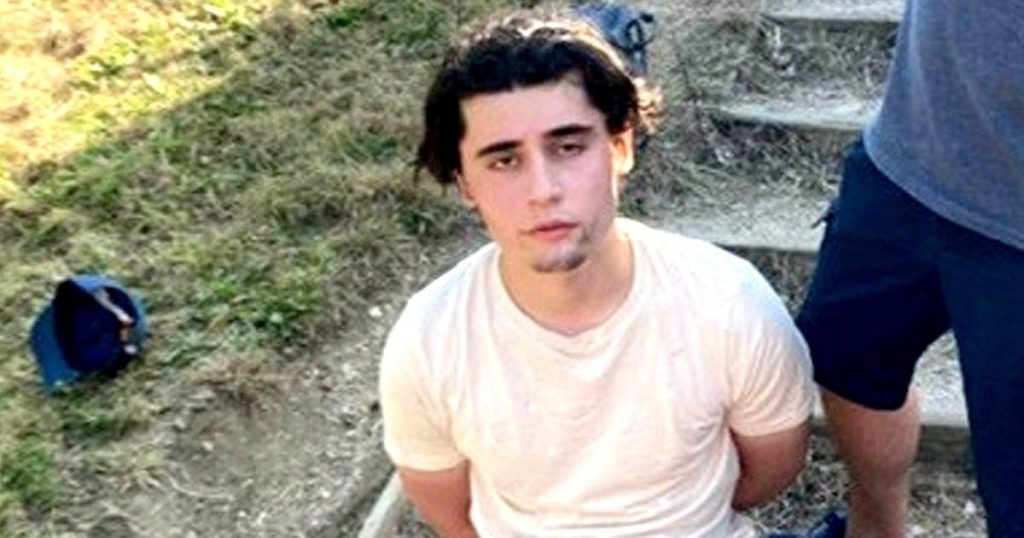The Case of Imran Chowdhury and Daniel Khalife’s Prison Escape: A Detailed Examination
The narrative surrounding Daniel Khalife’s prison escape and the subsequent legal proceedings against Imran Chowdhury, accused of aiding in the escape, unfolds as a complex tapestry of accusations, denials, and legal maneuvering. This detailed account delves into the specific events, the legal arguments presented, and the potential implications of this case, offering a comprehensive understanding of the unfolding drama.
On a crisp autumn day in September 2023, Daniel Khalife, a former soldier awaiting trial on espionage charges, executed a daring escape from HMP Wandsworth, a Category B prison in southwest London. The escape triggered a nationwide manhunt, captivating the public’s attention and raising serious questions about security protocols within the prison system. Khalife’s escape was particularly concerning given the nature of the charges against him, which involved breaches of the Official Secrets and Terrorism Acts.
Several weeks later, the spotlight shifted to Imran Chowdhury, a 25-year-old resident of Chingford, east London. Chowdhury was arrested and charged with assisting Khalife’s escape, a charge he vehemently denied. Appearing before Westminster Magistrates’ Court, Chowdhury confirmed his personal details and entered a plea of not guilty. The gravity of the charge, however, meant that the case was deemed too serious to be handled at the magistrates’ court level. Consequently, the proceedings were escalated to Snaresbrook Crown Court, where a more comprehensive legal battle was set to unfold.
While awaiting trial, Chowdhury was granted bail under specific conditions, which included residing at his designated address in Chingford. The decision to grant bail reflected the court’s adherence to the principle of "innocent until proven guilty," allowing Chowdhury to remain free until the trial commenced. The bail conditions served to ensure his availability for court appearances and potentially limit his ability to tamper with evidence or influence witnesses.
Meanwhile, the legal proceedings against Daniel Khalife continued on a separate track. In November 2024, Khalife was found guilty of spying for Iran, confirming the seriousness of the charges that had initially led to his imprisonment. The jury at Woolwich Crown Court delivered a verdict that underscored the weight of evidence against him, indicating that his actions constituted a clear violation of national security laws. In addition to the espionage conviction, Khalife also pleaded guilty to the charge of escaping from Wandsworth Prison, acknowledging his responsibility for the act that had initiated the entire sequence of events.
Khalife’s trial also addressed a separate accusation of carrying out a bomb hoax. However, the jury acquitted him on this count, indicating that the prosecution had failed to present sufficient evidence to establish his guilt beyond a reasonable doubt. The acquittal highlighted the importance of due process and the presumption of innocence, even in cases involving individuals accused of serious offenses.
Returning to Imran Chowdhury’s case, the focus remained on the charge of assisting an escaped prisoner. The prosecution will bear the burden of proving Chowdhury’s involvement in Khalife’s escape beyond a reasonable doubt. This will likely involve presenting evidence connecting Chowdhury to Khalife, demonstrating communication or coordination between them, and establishing that Chowdhury’s actions directly facilitated the escape.
Chowdhury’s defense, on the other hand, will likely center on discrediting the prosecution’s evidence, challenging the validity of any alleged connections between Chowdhury and Khalife, and offering alternative explanations for any circumstantial evidence presented. The defense may also attempt to portray Chowdhury as an unwitting participant in the escape, if any involvement is proven, arguing that he was unaware of Khalife’s intentions or coerced into assisting him.
The trial at Snaresbrook Crown Court will be a crucial juncture in determining the veracity of the accusations against Chowdhury. The judge and jury will carefully examine the evidence presented by both sides, weigh the credibility of witnesses, and ultimately decide whether Chowdhury is guilty or innocent. The outcome will have significant implications for Chowdhury, whose future hangs in the balance, as well as for the broader discussion surrounding prison security and the potential for external assistance in facilitating escapes.
The case of Imran Chowdhury and Daniel Khalife serves as a stark reminder of the challenges faced by the criminal justice system in balancing the rights of the accused with the need to uphold the law and protect society. The unfolding legal drama underscores the complexities of assigning responsibility in cases involving multiple actors and intricate sequences of events. As the legal process continues, the public will remain captivated by the unfolding narrative, eager to witness the final resolution of this intriguing case.











